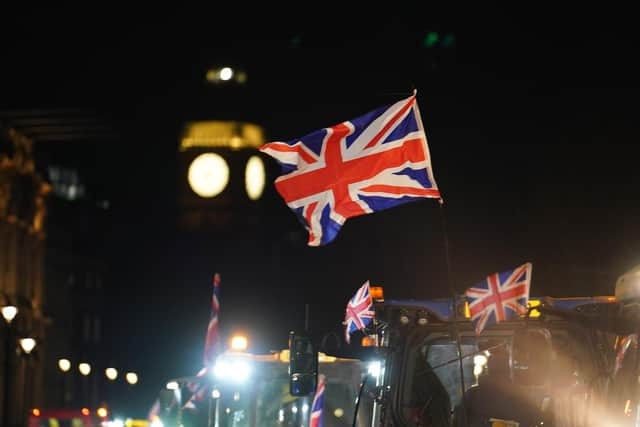Balance needed between carbon obligations and supporting rural communities - Sir Robert Goodwill
Lord Liverpool introduced the corn laws in 1815, preventing the import of wheat under 80 shillings a quarter, or £20 a tonne. In today’s money, that is double the price that wheat hit after the invasion of Ukraine, although the production stimulated by those protections meant that the actual price of wheat, and hence bread, never reached those dizzy heights.
My own family farm started business four years after the repeal of the corn laws by Robert Peel’s Administration in 1846. The workers’ cause, led by Cobden and Bright, had prevailed over the landowners’ vested interests. The era of free trade did not submerge the country under cheap imports from the Empire and new world, however. British farmers enjoyed a golden era in the 1870s, helped to some extent by the mass exodus of workers from the prairies to make their fortunes in the 1849 California gold rush, and by the little matter of the American civil war between 1861 and 1865.
Advertisement
Hide AdAdvertisement
Hide AdI make these points because of the parallels we see today, as we move out of a protectionist European Union into a new era of free trade. We should not forget that it was only the submarine blockades of the first and second world wars that brought into sharp focus the need for domestic food production. Two years ago, following Russia’s illegal invasion of Ukraine, we once again learned the same lesson.


We face a whole new challenge today: not only recognising the need for domestically produced food, but striking the right balance between food production and the environmental goals we need to achieve. In many cases, those goals can be delivered together, such as through the sustainable farming incentive, but in others, they are mutually exclusive. Surely, for example, it makes no sense to cover our most productive agricultural land with solar energy arrays.
Perhaps the most contentious issue is that of the uplands—the moors and dales in places such as North Yorkshire and the Lake District. Henry Dimbleby’s report is well worth a read. It correctly states that the 20 per cent of farmland that is in the uplands contributes only 1 per cent or 2 per cent of the calories produced in this country, and suggests that that land would be better utilised by planting trees to lock up carbon.
We have already seen that happening in the west of Scotland, with serious consequences for local communities and employment, and the Welsh Government have approached it in a very crude way: 10 per cent of land is to be planted with trees, regardless of the size and viability of the remaining farming business. Farmers have made their opposition to that policy very clear in Cardiff. I worry when I hear that Labour in Wales is a blueprint for what will happen in England if Labour were to get into power after the election.
Advertisement
Hide AdAdvertisement
Hide AdWe need to strike the right balance between the need to deliver our carbon obligations and the need to support rural communities, while also protecting the landscapes that merit national park designation.
An abridged version of a speech by Sir Robert Goodwill, Conservative MP for Scarborough and Whitby, in the House of Commons.
Comment Guidelines
National World encourages reader discussion on our stories. User feedback, insights and back-and-forth exchanges add a rich layer of context to reporting. Please review our Community Guidelines before commenting.